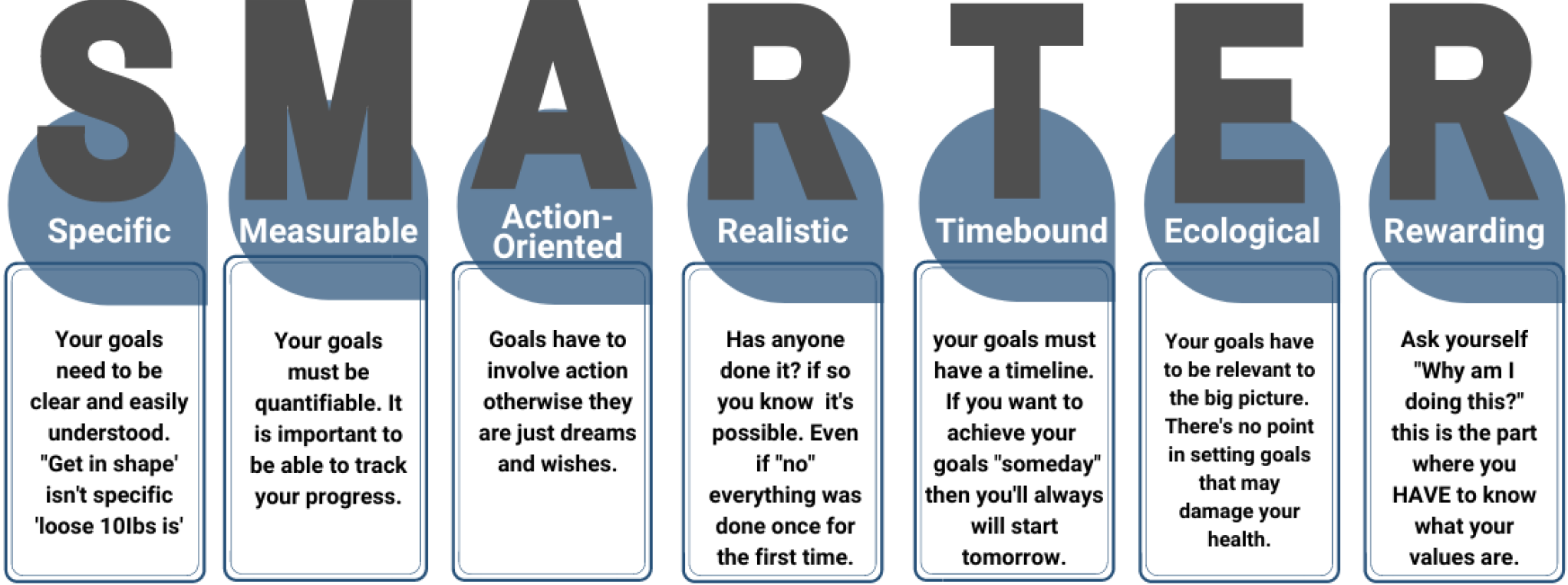Emily Peck
Features Writer,
Posted on Apr 20, 2021
Investigating Your Inner Motivations: How To Create Smarter Goals

It’s a well-known fact that if you want an honest opinion, you ask a child. Children have yet to develop the societal filters of politeness that allow cocktail parties to continue being hosted. Soaking up much of life for the first time, they have a lot to say and will happily share it with you if you ask. Or, without anyone asking at all.
This playful exploration gets swallowed up by stress as we take on more life responsibilities. We forget to wonder, to question our surroundings and ourselves which can leave us disconnected and detached.
What do I enjoy about Beyoncé’s music?
How would I feel if I took another route home today?
It can be good to simply feel something and not to overanalyze a situation. It can also be good to take pause every so often to look up from your grind, check in with yourself, and see where you’re going.
Why did you make these choices?
Do you like the person you are to your loved one?
This is the crucial step in the goal-setting process that is often overlooked. We want results, and we want them yesterday. We don’t want to waste any more time because we already feel we’re behind for not making a change sooner. But if you don’t stop for gas when your car is running on empty, it won’t matter what time you left your house. You’ll spend even more time stuck on the side of the road than had you gone initially.
It’s time to bring out our inner child and ask ourselves ‘why’ until we have the answers to keep us on track towards our goals.
Get SMART-ER
If you're not familiar with SMART goals, check out Jalapeño's summary about how to leverage SMART goal setting. SMART goals enable people to break down their goals into bite-size actions. While this is a great foundation for goal-setting, the SMART process leaves out two crucial elements of success if you’re looking to make a change
In line with dream big and aim small, SMARTER goals encompass both the practical and the passionate elements that will lead to your success.
Ecological - This is the, “So what” element of goal-setting. Connect your goals to the big picture so when you hit a bump along the way, you aren’t thrown off course entirely.
Rewarding - How will you know when you achieve your goal? What does success look like? Feel like? Sound like? Reminding yourself why this change matters to you connects you to your values and will help you to keep pushing.

Calculated Curiosity

We often don’t confront ourselves to be vulnerable with ourselves because we assume we’re living in a constant state of truth. Yet deep down, we all know we’re the best at poking holes in our own logic if it means we can indulge in the temptation sitting in front of us. If there’s pizza involved I guarantee you I have twelve excuses ready to justify my order, even if I’m just coming home from getting groceries.
To begin understanding your values and motivations, be an active participant in your own life. Investigate your potential like a journalist looking for a story, with a zealous curiosity. Ask yourself the familiar questions of WHO, WHAT, WHERE, WHEN, WHY, and HOW. But ask these with intention, and pay attention to your instinctual response when you do
We’ve all been in a conversation with another person when our brain was thinking about the project we were supposed to have finished earlier that day, and so we weren’t focused on the conversation right in front of us.
Here are some examples of questions to ask yourself in shaping your SMARTER goals:
1. What is My Goal?
A simple question with no simple answer. Or so it can feel. If a goal feels too big or undefined, it can be demotivating to even attempt starting to achieve it. Why are you even trying to achieve it? Refine your thoughts to their purest, simplest forms to make it extremely clear what you want.
Example: 
What is the best possible outcome for me from this situation?
What would have to happen to make me feel like I’ve won?
These questions help to clearly define what you truly want, and reminds you what success feels like to you.
For some people, it can feel self-indulgent or egotistical to state what you want with clear confidence. Supporting yourself to be comfortable in your vulnerability is the foundation to building your pathway to change.
This is why it’s important to consider your mental and physical state when engaging in goal setting. Create a space where you can listen to yourself: wear your favorite outfit, listen to a pump-up playlist, have a hot shower (I do a combo of all three) to tune into your needs
Test your answer by checking if it’s SMARTER (see graphic above). If your answers resonate with you and pass the SMARTER check, you’re ready for the next question.
2. Why Am I Doing This?
This stage is identifying why the “What” stage is so important to you personally, and how it will connect to your reason for setting a goal.
Example: 
Why do I want to make this change now?
Why am I excited to start this journey?
3. Who Could I Become?
This phase allows you to connect with how you already have evolved as a person, and how you wish to continue growing.
Example: 
Who do I want to see in the mirror every morning?
Who will support this transition of mine?
4. How Will I Support Myself to Succeed?
Not only does this stage strategize how you will accomplish this goal by thinking of the actions, but it encompasses the psychology around visualizations of what it will take to achieve your SMARTER goal.
Example: 
How will I feel when I’ve achieved this goal?
How will this goal change how I think about myself?
Ready, Set...Go?
So, you’re now prepared. You’re confident and clear on your goal. You’re motivated to get started. How do you now keep yourself on track to follow your plans for change? What can we do to resist distractions, improve our self-control, and be in a “flow state of mind”?
Check out our next article for top tricks to keeping yourself accountable.